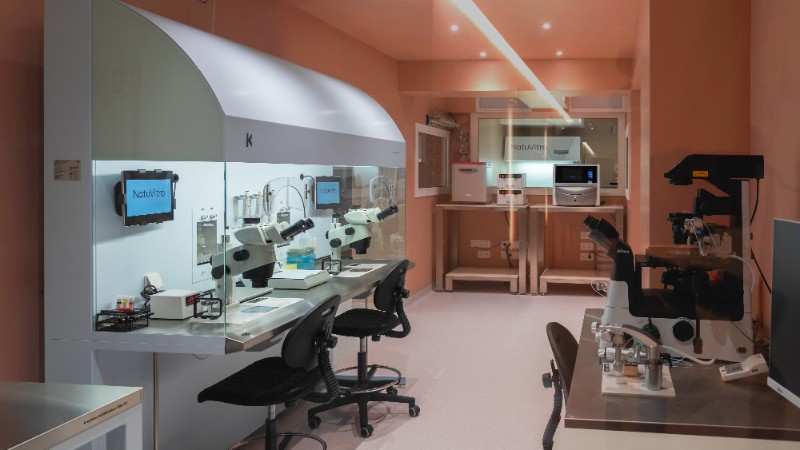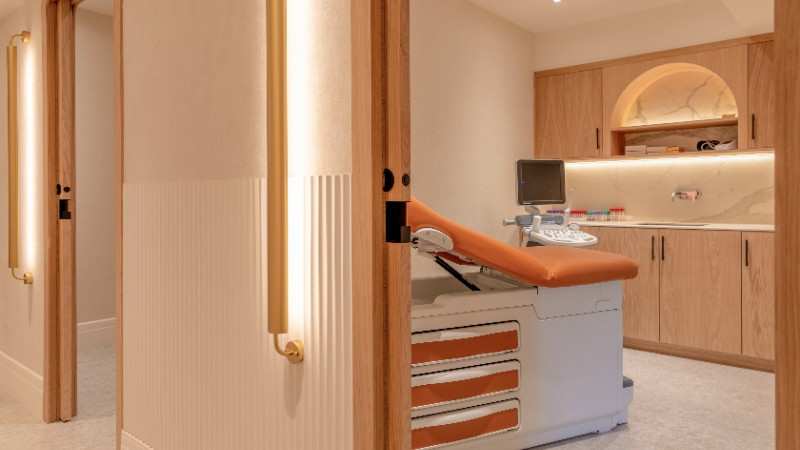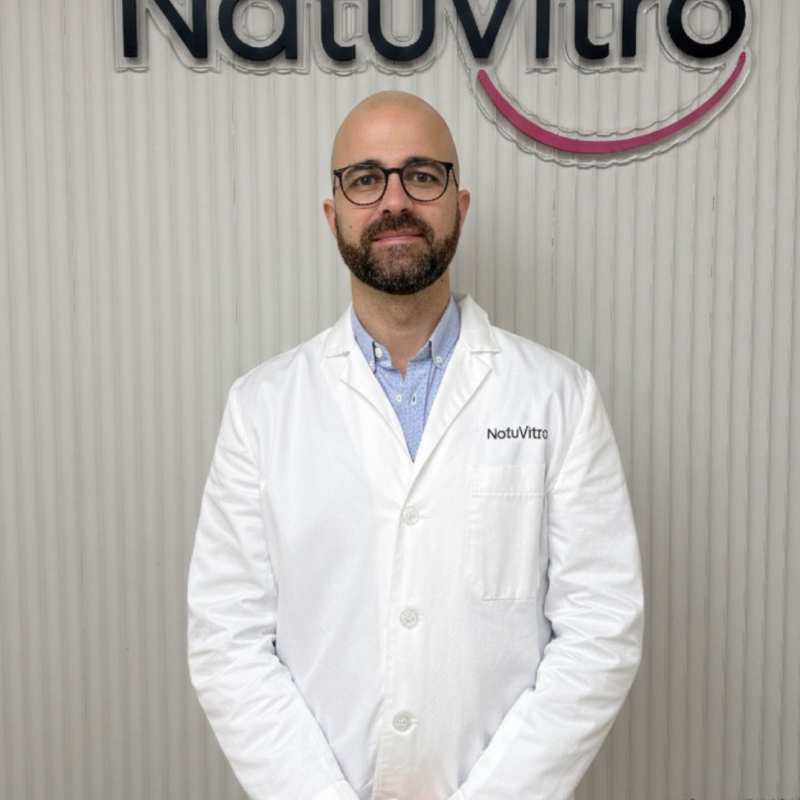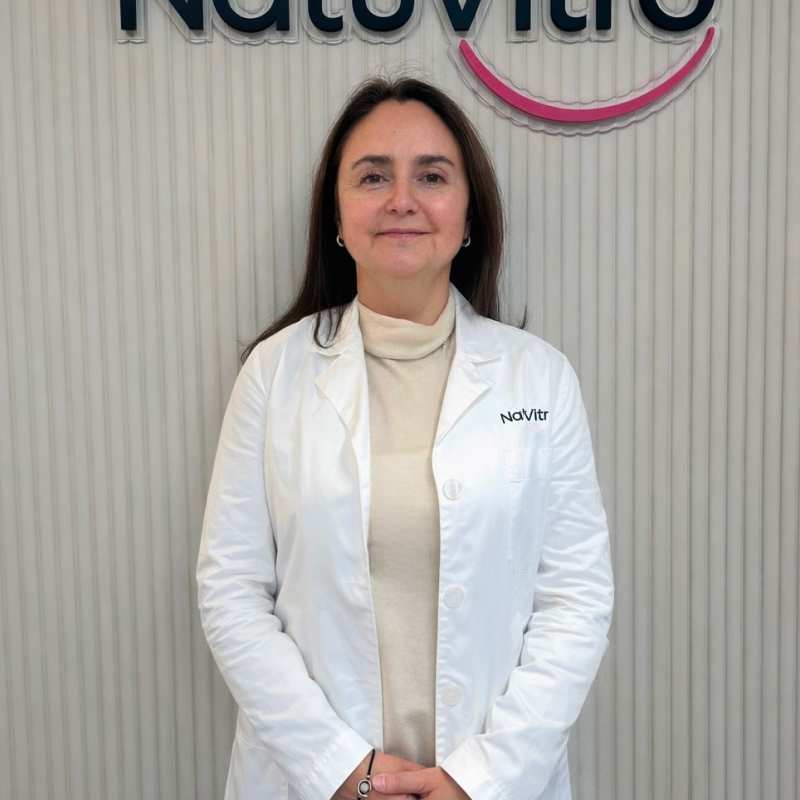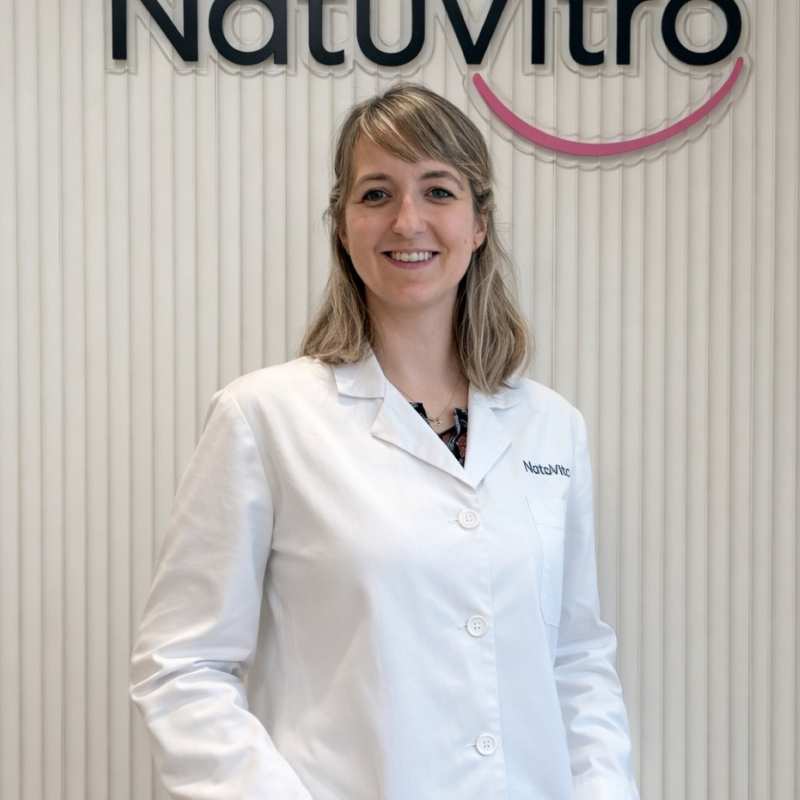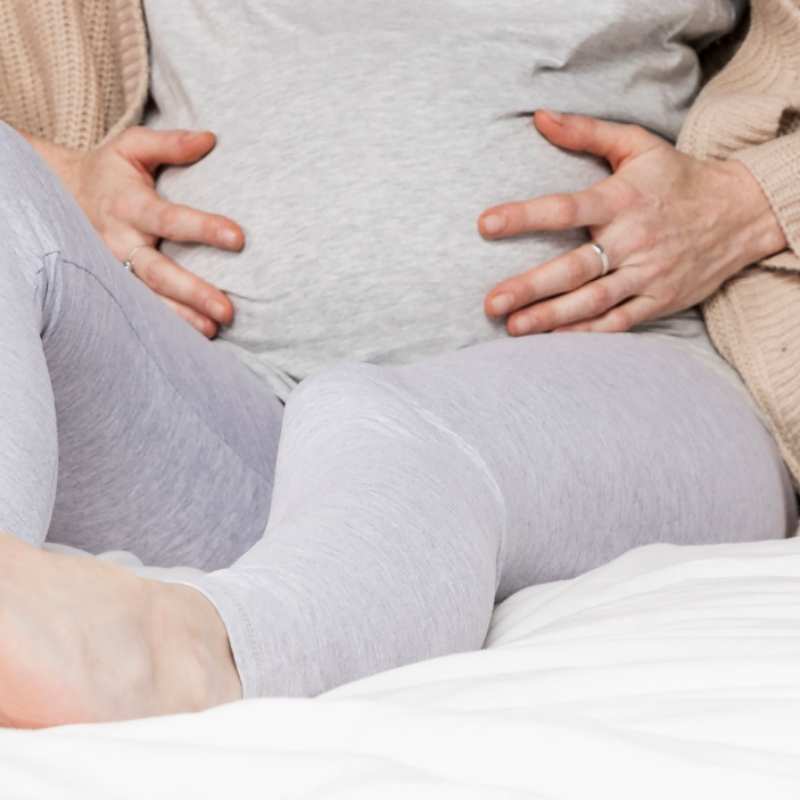
The Antiphospholipid Syndrome (APS) is a serious autoimmune disease that has a significant impact on the course of pregnancy. According to statistics, the phospholipid syndrome and pregnancy coexist in about 5% of women, but this association increases the risk of miscarriage by 30%. When monitoring the pregnancy in these patients, particular attention should be paid to the surveillance of the lupus anticoagulant, which is an important diagnostic marker and an indicator of disease activity. It is important to note that the presence of APS may manifest differently depending on the mode of conception. Studies show that APS is diagnosed more frequently in women undergoing an IVF protocol than in women who conceived naturally, as they are subject to closer medical monitoring. This does not necessarily mean that the disease is more frequent, but indicates the need for more thorough screening before assisted reproductive technology programs. Thus, the correlation between APS and IVF is due more to a higher detection frequency than to differences in pathogenesis.
What is Antiphospholipid Syndrome?
Antiphospholipid syndrome (APS) is an autoimmune disease in which the immune system produces antibodies against phospholipids, which are components of cell membranes. These antibodies disrupt the normal functioning of cells, particularly platelets and endothelial cells of blood vessels, leading to an increased risk of thrombosis and other complications. The lupus anticoagulant is one of the types of antiphospholipid antibodies detected in this syndrome.
In the context of pregnancy, APS can lead to serious complications such as:
- Recurrent miscarriages
- Intrauterine fetal death
- Premature birth
- Preeclampsia
- Intrauterine growth restriction
Causes of APS
Immunological and genetic factors
The etiology of Antiphospholipid Syndrome is complex and multifactorial. The main causes of APS are as follows:
- Genetic predisposition: hereditary factors play an important role in the development of APS, especially in cases of family history of autoimmune diseases.
- Associated autoimmune diseases: systemic lupus erythematosus (SLE) is the most common associated disease, diagnosed in about 30 to 40% of patients with APS.
- Infectious agents: such as Epstein-Barr virus, cytomegalovirus, human immunodeficiency virus, and hepatitis C virus can trigger the development of the syndrome.
- Malignant tumors: certain types of tumors may be associated with an increased risk of developing APS.
- Medications: some medications may induce the formation of antiphospholipid antibodies.
Influence of pregnancy on the development of the syndrome
Pregnancy itself is a state of physiological hypercoagulation that can potentially exacerbate the course of APS. During pregnancy, significant changes occur in the hemostatic system, including:
- Increased levels of blood coagulation factors
- Decreased activity of natural anticoagulants
- Inhibition of fibrinolysis
These changes, combined with APS, create a high risk of thrombotic complications. Furthermore, pregnancy may be a triggering factor for the initial diagnosis of APS in women with a genetic predisposition to this disease. Some patients only discover the presence of APS after several miscarriages.
Symptoms of APS during pregnancy
The clinical manifestations of Antiphospholipid Syndrome during pregnancy can vary from asymptomatic progression to severe complications. The most common symptoms are:
- Frequent and severe headaches
- Visual, coordination, and memory disturbances
- Sensation of lack of oxygen, shortness of breath, chest pain
- Increased blood pressure
- Redness and swelling of the legs, skin ulcers
- Numbness, pain in the limbs
- Pain behind the sternum after exertion
- Mottled complexion
Additionally, APS during pregnancy can manifest through the following pathologies:
- Miscarriages before 12 weeks
- Premature birth
- Intrauterine developmental delay of the fetus
- Intrauterine fetal death
- Feto-placental insufficiency
- Fetal hypoxia
- Hemolytic disease
- Preeclampsia
- Thromboses in various locations
- Venous thrombosis - embolism
- Stroke or infarction
In one-third of women who have experienced three or more miscarriages, autoimmune disorders, particularly APS, are detected.
Diagnosis of Antiphospholipid Syndrome
The diagnosis of APS is based on a combination of clinical and biological criteria. To establish the diagnosis, it is necessary to identify at least one clinical criterion and one biological criterion.
Clinical criteria:
- Venous or arterial thrombosis
- Obstetric pathology (recurrent miscarriages, premature births, intrauterine growth restriction)
Laboratory criteria:
- Lupus circulating anticoagulant (LAC)
- Anticardiolipin antibodies (IgG or IgM)
- Anti-β2-glycoprotein I antibodies (IgG or IgM)
To confirm the diagnosis of APS, it is necessary for positive laboratory tests to be detected at least twice after an interval of at least 12 weeks.
The normal lupus anticoagulant is the absence of activity in the blood plasma. Its detection is an important diagnostic criterion for APS.
Treatment of APS during pregnancy
The treatment of APS in pregnant women aims to prevent thrombosis and ensure normal fetal development. The approach is determined individually based on the situation and history. It is important to consider whether the pregnancy occurred naturally or as a result of an assisted reproductive technology technique, such as IVF (in vitro fertilization).
In cases of natural conception, the basic treatment relies on taking low doses of aspirin and low molecular weight heparins to prevent clot formation and improve placental blood circulation. These measures are generally sufficient in the absence of significant obstetric history.
In cases of IVF with egg donation and IVF with double donation, the burden on the body is greater, and the risk of complications increases. In such cases, treatment is more intensive: anticoagulant treatment begins before embryo transfer and is strictly monitored. Immunomodulatory medications, such as intravenous immunoglobulins or corticosteroids, are often added. Patients with APS undergoing IVF require more frequent laboratory and ultrasound monitoring, as the risk of thromboembolic and placental complications is significantly higher.
Thus, the therapeutic approach to APS varies depending on the mode of conception: in the case of IVF, stricter control and multi-component treatment are observed.
Standard treatment regimens include:
- Low doses of aspirin (75 to 100 mg/day)
- Low molecular weight heparin or unfractionated heparin
- Intravenous immunoglobulins (if indicated)
- Hydroxychloroquine (especially in cases of SLE)
Use of lupus anticoagulant during pregnancy
The term "lupus anticoagulant" refers to a diagnostic marker and not a therapeutic drug. In the treatment of APS, real anticoagulants are used:
Treatment peculiarities:
- Heparin does not cross the placenta and is safe during pregnancy
- Low molecular weight heparins are preferred due to their lesser side effects
Dosing:
- Prophylactic doses in the absence of thrombosis
- Therapeutic doses in case of a history of thrombosis
Aspirin:
- Prescribed in low doses, improves placental blood flow
Warfarin:
- Contraindicated during pregnancy, used only after delivery
Duration of treatment:
- From planning or the onset of pregnancy
- Throughout the entire duration of pregnancy
- At least 6 weeks after delivery (longer in case of risks)
At the Natuvitro clinic, pregnancy is monitored by experienced obstetricians-gynecologists who use modern diagnostic and treatment methods to ensure a complication-free pregnancy and the birth of a healthy child.
Our experts are ready to examine your case history, clarify your choices, and address every question you have.
Don't wait to make informed decisions – your personalized guidance awaits!
- Spain (España)+34
- France (La France)+33
- Italy (Italia)+39
- United Kingdom+44
- United States+1
- Belgium (België)+32
- Switzerland (Schweiz/Suisse)+41
- Germany (Deutschland)+49
- Netherlands (Nederland)+31
- Afghanistan (افغانستان)+93
- Albania (Shqipëri)+355
- Algeria (الجزائر)+213
- American Samoa+1
- Andorra+376
- Angola+244
- Anguilla+1
- Antigua and Barbuda+1
- Argentina+54
- Armenia (Հայաստան)+374
- Aruba+297
- Ascension Island+247
- Australia+61
- Austria (Österreich)+43
- Azerbaijan (Azərbaycan)+994
- Bahamas+1
- Bahrain (البحرين)+973
- Bangladesh (বাংলাদেশ)+880
- Barbados+1
- Belarus (Беларусь)+375
- Belize+501
- Benin (Bénin)+229
- Bermuda+1
- Bhutan (འབྲུག)+975
- Bolivia+591
- Bosnia and Herzegovina (Босна и Херцеговина)+387
- Botswana+267
- Brazil (Brasil)+55
- British Indian Ocean Territory+246
- British Virgin Islands+1
- Brunei+673
- Bulgaria (България)+359
- Burkina Faso+226
- Burundi (Uburundi)+257
- Cambodia (កម្ពុជា)+855
- Cameroon (Cameroun)+237
- Canada+1
- Cape Verde (Kabu Verdi)+238
- Caribbean Netherlands+599
- Cayman Islands+1
- Central African Republic (République centrafricaine)+236
- Chad (Tchad)+235
- Chile+56
- China (中国)+86
- Christmas Island+61
- Cocos (Keeling) Islands+61
- Colombia+57
- Comoros (جزر القمر)+269
- Congo (DRC) (Jamhuri ya Kidemokrasia ya Kongo)+243
- Congo (Republic) (Congo-Brazzaville)+242
- Cook Islands+682
- Costa Rica+506
- Côte d’Ivoire+225
- Croatia (Hrvatska)+385
- Cuba+53
- Curaçao+599
- Cyprus (Κύπρος)+357
- Czech Republic (Česká republika)+420
- Denmark (Danmark)+45
- Djibouti+253
- Dominica+1
- Dominican Republic (República Dominicana)+1
- Ecuador+593
- Egypt (مصر)+20
- El Salvador+503
- Equatorial Guinea (Guinea Ecuatorial)+240
- Eritrea+291
- Estonia (Eesti)+372
- Eswatini+268
- Ethiopia+251
- Falkland Islands (Islas Malvinas)+500
- Faroe Islands (Føroyar)+298
- Fiji+679
- Finland (Suomi)+358
- French Guiana (Guyane française)+594
- French Polynesia (Polynésie française)+689
- Gabon+241
- Gambia+220
- Georgia (საქართველო)+995
- Ghana (Gaana)+233
- Gibraltar+350
- Greece (Ελλάδα)+30
- Greenland (Kalaallit Nunaat)+299
- Grenada+1
- Guadeloupe+590
- Guam+1
- Guatemala+502
- Guernsey+44
- Guinea (Guinée)+224
- Guinea-Bissau (Guiné Bissau)+245
- Guyana+592
- Haiti+509
- Honduras+504
- Hong Kong (香港)+852
- Hungary (Magyarország)+36
- Iceland (Ísland)+354
- India (भारत)+91
- Indonesia+62
- Iran (ایران)+98
- Iraq (العراق)+964
- Ireland+353
- Isle of Man+44
- Israel (ישראל)+972
- Italy (Italia)+39
- Jamaica+1
- Japan (日本)+81
- Jersey+44
- Jordan (الأردن)+962
- Kazakhstan (Казахстан)+7
- Kenya+254
- Kiribati+686
- Kosovo+383
- Kuwait (الكويت)+965
- Kyrgyzstan (Кыргызстан)+996
- Laos (ລາວ)+856
- Latvia (Latvija)+371
- Lebanon (لبنان)+961
- Lesotho+266
- Liberia+231
- Libya (ليبيا)+218
- Liechtenstein+423
- Lithuania (Lietuva)+370
- Luxembourg+352
- Macau (澳門)+853
- North Macedonia (Македонија)+389
- Madagascar (Madagasikara)+261
- Malawi+265
- Malaysia+60
- Maldives+960
- Mali+223
- Malta+356
- Marshall Islands+692
- Martinique+596
- Mauritania (موريتانيا)+222
- Mauritius (Moris)+230
- Mayotte+262
- Mexico (México)+52
- Micronesia+691
- Moldova (Republica Moldova)+373
- Monaco+377
- Mongolia (Монгол)+976
- Montenegro (Crna Gora)+382
- Montserrat+1
- Morocco (المغرب)+212
- Mozambique (Moçambique)+258
- Myanmar (Burma) (မြန်မာ)+95
- Namibia (Namibië)+264
- Nauru+674
- Nepal (नेपाल)+977
- New Caledonia (Nouvelle-Calédonie)+687
- New Zealand+64
- Nicaragua+505
- Niger (Nijar)+227
- Nigeria+234
- Niue+683
- Norfolk Island+672
- North Korea (조선 민주주의 인민 공화국)+850
- Northern Mariana Islands+1
- Norway (Norge)+47
- Oman (عُمان)+968
- Pakistan (پاکستان)+92
- Palau+680
- Palestine (فلسطين)+970
- Panama (Panamá)+507
- Papua New Guinea+675
- Paraguay+595
- Peru (Perú)+51
- Philippines+63
- Poland (Polska)+48
- Portugal+351
- Puerto Rico+1
- Qatar (قطر)+974
- Réunion (La Réunion)+262
- Romania (România)+40
- Russia (Россия)+7
- Rwanda+250
- Saint Barthélemy+590
- Saint Helena+290
- Saint Kitts and Nevis+1
- Saint Lucia+1
- Saint Martin (Saint-Martin (partie française))+590
- Saint Pierre and Miquelon (Saint-Pierre-et-Miquelon)+508
- Saint Vincent and the Grenadines+1
- Samoa+685
- San Marino+378
- São Tomé and Príncipe (São Tomé e Príncipe)+239
- Saudi Arabia (المملكة العربية السعودية)+966
- Senegal (Sénégal)+221
- Serbia (Србија)+381
- Seychelles+248
- Sierra Leone+232
- Singapore+65
- Sint Maarten+1
- Slovakia (Slovensko)+421
- Slovenia (Slovenija)+386
- Solomon Islands+677
- Somalia (Soomaaliya)+252
- South Africa+27
- South Korea (대한민국)+82
- South Sudan (جنوب السودان)+211
- Spain (España)+34
- Sri Lanka (ශ්රී ලංකාව)+94
- Sudan (السودان)+249
- Suriname+597
- Svalbard and Jan Mayen+47
- Sweden (Sverige)+46
- Syria (سوريا)+963
- Taiwan (台灣)+886
- Tajikistan+992
- Tanzania+255
- Thailand (ไทย)+66
- Timor-Leste+670
- Togo+228
- Tokelau+690
- Tonga+676
- Trinidad and Tobago+1
- Tunisia (تونس)+216
- Turkey (Türkiye)+90
- Turkmenistan+993
- Turks and Caicos Islands+1
- Tuvalu+688
- U.S. Virgin Islands+1
- Uganda+256
- Ukraine (Україна)+380
- United Arab Emirates (الإمارات العربية المتحدة)+971
- Uruguay+598
- Uzbekistan (Oʻzbekiston)+998
- Vanuatu+678
- Vatican City (Città del Vaticano)+39
- Venezuela+58
- Vietnam (Việt Nam)+84
- Wallis and Futuna (Wallis-et-Futuna)+681
- Western Sahara (الصحراء الغربية)+212
- Yemen (اليمن)+967
- Zambia+260
- Zimbabwe+263
- Åland Islands+358
Visit our clinic
Location
Call us now
Leave a message

